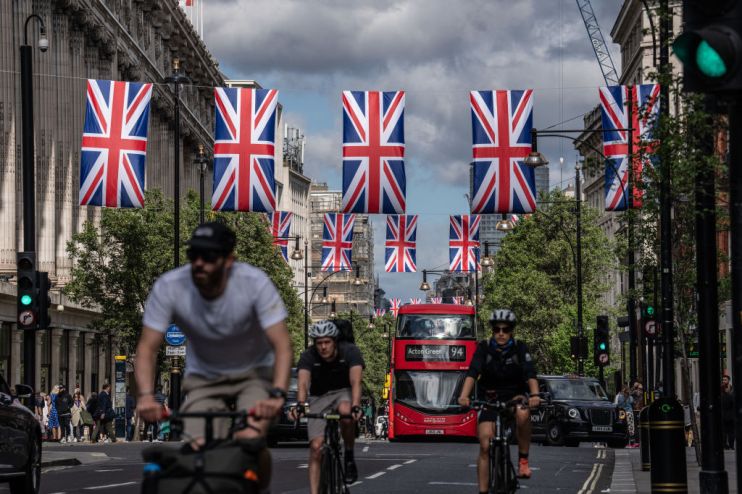UK economy spiralling toward ‘troubling’ recession and even higher inflation

The UK economy is hurtling towards a “troubling” slump that will see it tip into recession and suffer from rampant inflation, reveals a closely watched survey published today.
Consumers are responding to the worst cost of living crunch in a generation by cooling spending, while businesses are grappling with flatlining demand, according to S&P Global’s flash purchasing managers’ index (PMI) for June.
The PMI was unchanged at 53.1 points in June, meaning the economy still expanded as the reading topped the 50 point threshold that separates growth from contraction. That level also beat analysts’ expectations.
But, experts warned the UK is about to lean into a protracted downturn.
“The economy is starting to look like it is running on empty,” Chris Williamson, chief business economist at S&P Global, said.
“The UK looks set for a troubling combination of recession and elevated inflation as we move into the second half of the year,” he added.
The economy has not grown since the first month of this year and shrank in March and April. The Bank of England thinks it will contract 0.3 per cent in the current quarter.
Britain is being spiked by the highest inflation rate in G7, with prices climbing 9.1 per cent annually, the quickest accelerating since the 1980s.
A separate report published today by the National Institute of Economic and Social Research and the Productivity Institute found the UK also has one of the worst rates of productivity growth in the G7, resulting in workers losing an average of £5,000 each year over the last decade.
“The UK’s productivity performance has deteriorated relative to other G7 economies throughout much of the post-war period, which seems to indicate a deep structural problem,” the report found.
Households are expected to respond to elevated living costs eroding their spending power at the fastest rate on record by cutting unnecessary purchases, weighing on overall output.
That spending slowdown is already beginning to emerge, with the UK services sector, which generates a huge proportion of gross domestic product, stalling.
“The service sector is already seeing signs of the recent growth spurt from pent-up pandemic demand move into reverse amid the rising cost of living,” Williamson added.
The PMI for the services economy was also unchanged at 53.4, while the manufacturing index dropped to 53.4.
The risk of a recession is likely to make the Bank of England tread carefully to avoid dealing unnecessary long-term damage to the UK economy.
Governor Andrew Bailey and co are juggling taming an expected inflation peak of over 11 per cent – more than five times its two per cent target – with shielding growth.
The Bank has already hiked rates at its last five meetings, taking them from a historic low of 0.1 per cent to a 13-year high of 1.25 per cent.
However, analysts said today’s PMI suggested the economy was holding up better than expected, meaning the Bank can accelerate its tightening cycle.
Matthew Ryan, head of market strategy at finance firm Ebury, said the PMI “is another indication that UK recession fears are perhaps slightly overblown. A strong labour market, savings accumulated during the pandemic and a degree of pent-up demand that is as yet to be unleashed should.”
“A 50 basis point rate hike at the bank’s next meeting in August is, in our view, very much on the table, particularly should inflation data again surprise to the upside in the interim.”
Europe also feels cost of living chill
The European economy is being choked by the worst inflation crunch on record cooling consumer spending, a separate PMI released today revealed.
Output in the services and manufacturing sectors plunged to its lowest level in nearly a year and a half, with the composite flash PMI for the bloc dipping to 51.9 in June from 54.8.
Russia’s invasion of Ukraine has sent European energy prices soaring, hobbling the area’s industrial sector and hitting households’ finances.
Business optimism for the coming year fell to its lowest reading since October 2020, primarily driven by the war and ongoing China Covid-19 lockdowns injecting uncertainty into trading conditions.
“The stagnation of demand and worsening outlook were widely blamed on the rising cost of living, tighter financial conditions and concerns over energy and supply chains linked to the Ukraine war and ongoing pandemic disruptions,” S&P Global said.
Inflation has surged to 8.4 per cent in the group of companies that use the euro, the hottest rate since the currency’s creation in 1999.
European Central Bank president Christine Lagarde has pledged to raise interest rates for the first time in over a decade next month.